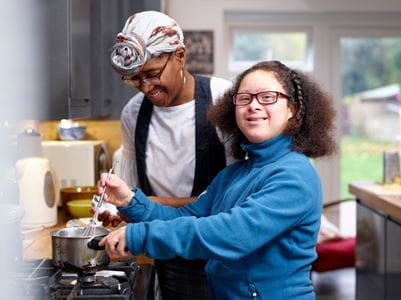Avoiding the check out when you’re wanting to check in with your kids
Written by: Bill Beechler, MD
Department of Pediatrics, Division of Developmental Medicine
Life is busy and complicated and hard - both for you and your children. We would love nothing better than to be able to protect them from the harsh realities of life; however, we can’t do that and give them the freedom that they need to grow into the resilient, empathetic adults we know that they can be. We can, though, find ways to connect with them on a day-to-day basis so that they know that they can talk with us about their successes, their challenges, and their worries. We just need to find some ways to make those connections at the right times.
It's always tempting to ask, “How was your day?” as soon as you see your kids after school or other activities. We often forget that, very much like us, they usually need some time to decompress after hours of expectations, socialization, and sensory overload. It’s important to give them some time to listen to music, play with a favorite toy or game, do some fun reading, or have a snack before we try to engage them in meaningful conversation or start new tasks such as chores or homework. The amount of time needed will vary from child to child and can also change as children age. You know them best and can often read their moods better than anyone else.
If your family schedule allows for dinners together in the evenings, having your child in the room with you as you put the meal together or having them help with age-appropriate tasks in meal preparation can be a great time to start talking about their day. Avoid questions that can be answered by easy, one-word responses. Ask things like “What’s something new that you learned from a teacher or one of your friends today?” or “What’s something kind that you did, or you saw someone do for someone else today?”. Make sure to give back, too, by talking about your day in an age-appropriate way. Sometimes, the distraction of doing a task, like making dinner, can help open both of you up.
Taking time at bedtime, even a few minutes, to read together in your child’s quiet, safe space can also lead to good sharing. Talk about the characters in the book. What made them happy or sad or scared or brave? Ask you child about things that make them happy or sad or scared or brave. As your children age, taking a few minutes at night to check in can still be effective and rewarding. Let your teens know that they can send you text questions, funny memes, or notes in a special place that you can read and respond to.
Open communication between parents/caregivers and children is a gift that continues throughout our lifetimes. That connection, that love, is special and unique in every family and it helps build the resilience, trust, and empathy that will carry on and help maintain healthy relationships as our babies become adults.
